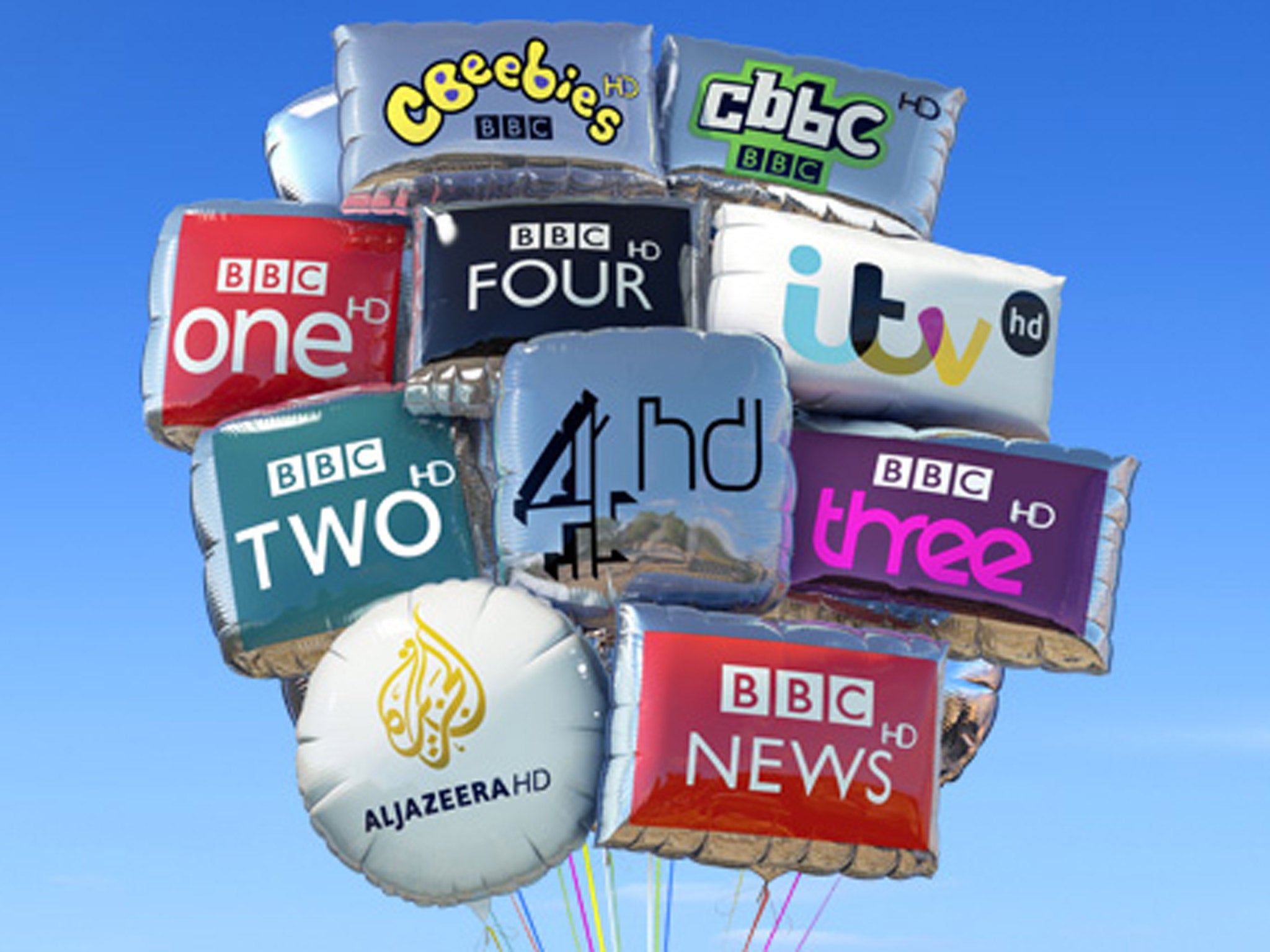Freeview TV under threat as mobile phone companies eat up more of the airwaves

Your support helps us to tell the story
From reproductive rights to climate change to Big Tech, The Independent is on the ground when the story is developing. Whether it's investigating the financials of Elon Musk's pro-Trump PAC or producing our latest documentary, 'The A Word', which shines a light on the American women fighting for reproductive rights, we know how important it is to parse out the facts from the messaging.
At such a critical moment in US history, we need reporters on the ground. Your donation allows us to keep sending journalists to speak to both sides of the story.
The Independent is trusted by Americans across the entire political spectrum. And unlike many other quality news outlets, we choose not to lock Americans out of our reporting and analysis with paywalls. We believe quality journalism should be available to everyone, paid for by those who can afford it.
Your support makes all the difference.Freeview is facing “death by stealth” because of the relentless growth of mobile phone companies - according to the chair of Digital UK, the body which oversees the popular television platform.
Caroline Thomson, who until recently was the BBC’s Chief Operating Officer, will argue in a major speech today that Freeview - which is in 19 million British homes - faces being sacrificed to the “slice by slice” demand of mobile operators for precious broadcast spectrum.
Ms Thomson believes the Digital Terrestrial Television (DTT) model on which Freeview operates could become so limited that it would be “unviable”, and that Freeview users would have to switch to other services controlled by companies such as BT and BSkyB.
She said she feared “an insidious slicing away of spectrum available to DTT because mobile is the sexy thing and the thing which is engaging policy makers and makes Government money from selling spectrum”.
Her comments come ahead of a meeting of the World Radio Conference next year at which an earlier decision is expected to be ratified, ensuring that the 700 Megahertz (MHz) spectrum band is reallocated from television to mobile.
Ms Thomson said this would mean that in 2018, Freeview viewers would be required to make fresh adjustments to their sets. “The broadcasters will have to move… spectrum and a fair number will have to change their aerials and may need to retune their boxes. It will be quite a big communications job to tell people what to do.”
It is only two years since Digital UK completed the successful Digital Switchover process in which the analogue signal was turned off and millions of households were persuaded to switch to Freeview. She said policy makers could be “sleepwalking” into a new “switchover by stealth – or even a switch-off by stealth” by continually reducing the spectrum for DTT.
“The signs are that the mobile operators are then going to ask for the 600 MHz band,” she said. “That’s what I mean about it being slice by slice. Every bit causes more problems to television signal by aerial and confines more the space that can be occupied by broadcasting.”
In such a scenario, Freeview would be reduced to a narrow output of public service channels from the BBC, ITV, Channel 4 and Channel 5. “It becomes very much a second class service and stops being a viable alternative, you start saying to people the only way of getting a full television service is via gatekeepers such as BT and Sky.”
Ms Thomson said she recognised that it was extremely important to the UK economy that mobile communications were enabled to thrive. “We all want mobile to be successful but we think there’s a real risk that they go helter skelter down the mobile route of clearing spectrum unnecessarily.”
“By the slice by slice erosion you kill DTT. I’m not accusing policy makers of setting off to kill DTT; they all say they are backing it, but the pressures to do things for mobile are such that they do it almost by accident.”
Spectrum is an international issue, which is why it is overseen by the WRC. A change in spectrum use in the south of England, for example, could have implications for reception in France. The decision to reallocate the 700 MHz band began after US mobile operators lobbied for clearance of the band for mobile use in Africa.
Ms Thomson said a change of spectrum in North Africa affected southern Italy and Spain and had led to Europe clearing the band for mobile. But she said German broadcasters shared her reservations.
She will deliver her warning at this week’s conference of the Voice of the Listener and Viewer at the Geological Society in London.
Colin Browne, the VLV chairman, backed Ms Thomson’s concerns. “The risk is that Freeview dies a death by a thousand cuts,” he said.
Join our commenting forum
Join thought-provoking conversations, follow other Independent readers and see their replies
Comments